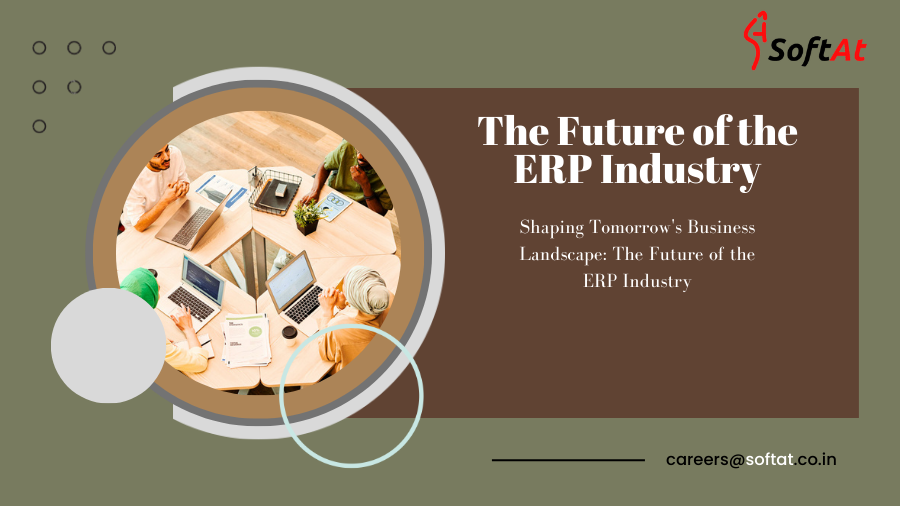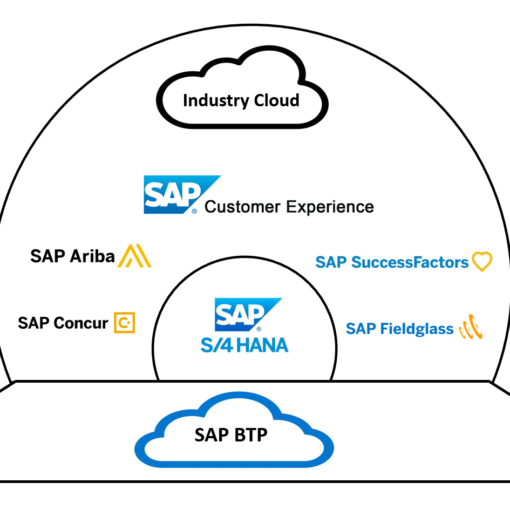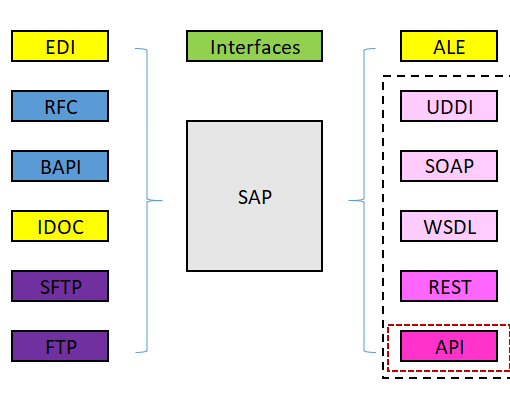The world of enterprise resource planning (ERP) has come a long way since its inception, revolutionizing the way businesses manage their operations and resources. As technology continues to advance at an unprecedented pace, what does the future hold for the ERP industry? In this blog, we will explore key trends and insights that provide a glimpse into the exciting and transformative future of ERP.
ERP in the Present
Before we dive into the future, let’s briefly touch upon the present state of the ERP industry. Currently, ERP systems serve as the backbone of countless organizations across various industries. They integrate and manage core business processes, including finance, HR, supply chain, and customer relations. However, the landscape is evolving rapidly, driven by emerging technologies and changing business dynamics.
The Future of the ERP Industry
1. Cloud-Based ERP Dominance
The transition to cloud-based ERP solutions is already well underway, and this trend will continue to dominate the industry. Cloud ERP offers numerous advantages, including scalability, accessibility, and cost-efficiency. It allows organizations to adapt quickly to changing business needs and provides the flexibility to scale resources up or down as required.
2. AI-Powered ERP Systems
Artificial intelligence (AI) is poised to be a game-changer in the ERP space. AI-powered ERP systems will enhance decision-making with predictive analytics, automate routine tasks, and provide valuable insights from vast amounts of data. This will lead to more intelligent, data-driven decision-making across organizations.
3. IoT Integration
The Internet of Things (IoT) will play a significant role in the future of ERP. ERP systems will seamlessly integrate with IoT devices and sensors, allowing real-time monitoring of equipment, products, and supply chains. This connectivity will enable proactive maintenance, optimize resource allocation, and improve overall operational efficiency.
4. Blockchain for Transparency
Blockchain technology is making waves in various industries, and ERP is no exception. The integration of blockchain into ERP systems will enhance transparency and traceability throughout the supply chain. This will be particularly crucial in industries where product authenticity and compliance are paramount, such as pharmaceuticals and food.
5. Personalized User Experiences
Future ERP systems will prioritize user experience, offering personalized interfaces and role-based access. This will empower employees to interact with the system more intuitively, boosting productivity and reducing the learning curve associated with complex ERP systems.
6. Ecosystem Integration
ERP will become a central hub for integrating not only internal processes but also external ecosystems. This includes seamless collaboration with suppliers, customers, and partners, creating end-to-end visibility and efficiency across the entire value chain.
7. Enhanced Cybersecurity
As ERP systems store sensitive and critical business data, cybersecurity will remain a top priority. Future ERP solutions will incorporate advanced security measures, including multi-factor authentication, encryption, and AI-driven threat detection, to safeguard against cyberattacks and data breaches.
8. Sustainability and ESG Reporting
In an increasingly environmentally conscious world, ERP systems will incorporate sustainability and Environmental, Social, and Governance (ESG) reporting capabilities. This will enable organizations to track and report their environmental and social impact, meeting regulatory requirements and aligning with corporate responsibility goals.
Preparing for the Future of the ERP
As the ERP industry evolves, organizations must be proactive in preparing for the future:
- Stay Informed: Keep abreast of emerging technologies and trends in the ERP industry by participating in industry conferences, webinars, and research.
- Evaluate Your ERP Needs: Regularly assess your organization’s ERP requirements to ensure that your system aligns with your evolving business goals.
- Invest in Training: Training your employees on the latest ERP technologies and best practices is crucial for maximizing the benefits of your ERP system.
- Partner with ERP Experts: Collaborate with ERP experts and consultants to help your organization navigate the complexities of system upgrades and integrations.
- Stay Agile: Maintain flexibility and agility in your business processes to adapt to changing technologies and market conditions.
In conclusion, the future of the ERP industry promises an exciting journey of innovation and transformation. Cloud computing, AI, IoT, blockchain, and user-centric design will be at the forefront of this evolution. Embracing these advancements and proactively preparing for the future will position businesses to thrive in an increasingly digital and interconnected world. ERP systems will continue to be a vital tool for organizations looking to streamline operations, enhance decision-making, and achieve sustainable growth.





